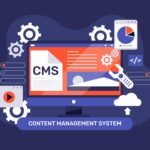Mastering Digital Marketing for Your Online Business
- Hanzla Ijaz
- digital marketing
- 1 Comment
|
Getting your Trinity Audio player ready...
|
“`html
Introduction to Digital Marketing
Digital marketing for online business has evolved to become an indispensable component of modern business strategies. Unlike traditional marketing, which relies heavily on physical mediums such as newspapers, billboards, and television, digital marketing leverages the power of the internet and electronic devices to reach and engage with the target audience. This shift from offline to online has opened up a vast array of opportunities for businesses to connect with their customers more effectively and efficiently.
At its core, digital marketing encompasses several key areas, each with its distinct role and importance. One of the foundational elements is Search Engine Optimization (SEO), which involves optimizing a website to rank higher in search engine results, thereby increasing its visibility to potential customers. Pay-Per-Click (PPC) advertising, on the other hand, allows businesses to display ads in search engine results and on other websites, paying only when a user clicks on the ad.
Content marketing is another crucial aspect, focusing on creating and distributing valuable, relevant content to attract and retain a clearly defined audience. This often includes blog posts, articles, videos, and infographics. Social media marketing utilizes platforms like Facebook, Twitter, and Instagram to engage with audiences, build brand awareness, and drive traffic to the business’s website.
Email marketing remains a powerful tool for reaching customers directly in their inboxes, delivering personalized messages, promotions, and updates. Additionally, affiliate marketing involves partnering with individuals or companies who promote the business’s products or services in exchange for a commission on sales generated through their referrals.
By understanding these fundamental concepts and terminologies, businesses can develop a robust digital marketing strategy tailored to their unique needs and goals. As the digital landscape continues to evolve, staying informed and adaptable will be key to mastering digital marketing for online business success.
Building a Strong Online Presence
In the contemporary digital landscape, establishing a robust online presence is paramount for the success of any online business. One of the foundational steps in this process involves creating a professional website that serves as the virtual storefront. This website should reflect the business’s identity through an elegant design, user-friendly interface, and informative content. Investing in a reliable hosting service and ensuring the website is secure and fast-loading can significantly enhance user experience, which is crucial for retaining visitors.
Search engine optimization (SEO) is an integral component of digital marketing for online businesses. SEO involves optimizing website content and structure to rank higher on search engine results pages (SERPs). This can be achieved through strategic use of keywords, meta tags, backlinks, and high-quality content relevant to your audience. Proper SEO can increase organic traffic to the website, making it easier for potential customers to discover your business. It is also essential to ensure that the site is mobile-friendly, given that a significant portion of users accesses the internet through their smartphones.
Branding is another critical aspect of building a strong online presence. This includes creating a distinctive logo and adopting a consistent color scheme and messaging across all digital platforms. A well-defined brand not only sets your business apart from competitors but also builds trust and loyalty among customers. Consistent branding across your website, social media channels, and marketing materials ensures a cohesive and professional image.
By focusing on these elements—creating a professional and optimized website, implementing effective SEO strategies, ensuring mobile compatibility, and maintaining consistent branding—businesses can establish a solid online presence. This not only attracts and retains customers but also supports long-term growth in the highly competitive digital marketplace.
Content marketing stands as a pivotal element in the realm of digital marketing for online businesses. By crafting compelling content, businesses can attract and engage their target audience effectively. Various types of content, such as blog posts, videos, and infographics, cater to different consumer preferences and enhance engagement. For instance, while blog posts offer in-depth insights and can establish authority in a niche, videos provide a dynamic way to showcase products or services, and infographics present complex information succinctly and attractively.
To ensure consistent and strategic content creation, planning and maintaining a content calendar become indispensable. A well-structured content calendar helps in tracking the content creation process, scheduling posts, and aligning content with key marketing milestones or product launches. It is essential to mix various types of content within the calendar to keep the audience engaged and cater to diverse content consumption patterns.
High-quality, relevant content not only captivates the audience but also builds trust and credibility. Content that addresses the needs, preferences, and pain points of the audience tends to perform better. Additionally, integrating effective SEO techniques is crucial to enhance content visibility. This begins with comprehensive keyword research. Keywords related to your industry should be naturally embedded within the content. Tools like Google Keyword Planner can assist in identifying popular search terms that align with your business offerings.
Moreover, optimizing meta descriptions, using header tags strategically, ensuring mobile-friendliness, and improving page load speed are integral components of SEO. When keywords are utilized correctly, they enhance search engine rankings and drive organic traffic to your site. Bear in mind that while keywords are important, they should be used sparingly to avoid keyword stuffing, which can negatively impact readability and search rankings.
Content marketing, therefore, extends beyond mere creation; it involves strategic planning, relevance, and optimization to effectively leverage digital marketing for online business growth. By focusing on these aspects, businesses can achieve sustainable success and build a loyal customer base.
Utilizing Social Media Platforms
Social media platforms have become indispensable tools in the realm of digital marketing for online business. The first step in leveraging these platforms is identifying the ones that align best with your target audience. Platforms like Facebook and Instagram are ideal for a broad demographic, whereas LinkedIn is more suited for B2B marketing, and Pinterest can be a goldmine for niche products.
Understanding your target audience allows for more tailored content creation, thus enhancing engagement. For instance, Facebook offers diverse content formats, including text posts, images, videos, and live streams, making it versatile for various marketing strategies. Instagram, known for its visual appeal, is perfect for sharing high-quality images and short videos, along with exploiting features like Stories and Reels to maintain visibility.
On LinkedIn, content should be more professional and informative, focusing on industry insights, company updates, and B2B interactions. Twitter, with its real-time updates and brevity, is ideal for timely announcements, trending topics, and customer service interactions.
Once you’ve pinpointed the right platforms, the creation of engaging content becomes paramount. It’s essential to craft posts that not only inform but also entertain and captivate your audience. Utilize eye-catching visuals, compelling stories, and interactive content such as polls and Q&A sessions. Engaging content encourages reactions, shares, and comments, all of which are beneficial for broadening your reach.
Running effective social media campaigns involves strategic planning and constant monitoring. Utilize analytics tools to track performance metrics, such as engagement rates and click-through rates. These insights are crucial in refining your strategies and making data-driven decisions.
The importance of social listening and community engagement cannot be overstated. Social listening involves monitoring online conversations about your brand and industry. This enables you to keep a pulse on customer sentiments and emerging trends. Engaging with your community by responding to comments and messages in a timely manner fosters loyalty and shows that you value customer interactions.
By effectively utilizing social media platforms, creating engaging content, and prioritizing community engagement, you can significantly enhance your digital marketing efforts, driving growth and success for your online business.
Email Marketing Campaigns
In the sphere of digital marketing for online business, email marketing campaigns stand as a cornerstone strategy for nurturing leads and driving conversions. To build an effective email marketing campaign, the initial step is creating a robust email list. This involves attracting potential subscribers through various channels such as social media, website sign-ups, and content offers like e-books or webinars. It is imperative to ensure compliance with GDPR and other relevant regulations during this process.
Personalized and relevant email content is essential for keeping your audience engaged. Crafting emails that address the specific needs and interests of your subscribers can significantly enhance the email’s effectiveness. Utilize data collected from user behavior and preferences to tailor your messages. Dynamic content and personalization tokens, such as the recipient’s name, can make each email feel more personal and relevant.
Segmenting your audience is another critical factor for the success of your email marketing campaigns. Segmentation allows you to categorize your email subscribers based on various criteria, such as demographics, past interactions, and purchase history. By doing so, you can send targeted emails that resonate better with each segment, thereby increasing the chances of engagement and conversion.
The use of email automation tools can streamline your email marketing efforts. Automation can help manage drip campaigns, which send a series of timely, tailored emails to leads based on their behavior or stages in the buyer’s journey. These tools can also aid in tracking metrics such as open rates and click-through rates, essential for measuring the performance of your campaigns.
Improving open rates and click-through rates involves best practices such as crafting compelling subject lines, ensuring mobile-friendly email design, and optimizing the send times. A/B testing different elements of your emails can provide insights into what resonates best with your audience, allowing for continuous improvement of your campaigns.
Incorporating these strategies and best practices into your email marketing campaigns can transform how you engage with potential customers, ultimately driving higher conversion rates and contributing to the overall success of your online business.
Pay-Per-Click Advertising (PPC)
Pay-Per-Click (PPC) advertising is an essential component of digital marketing for online businesses, offering a way to drive traffic and generate leads through paid advertisements. Unlike organic methods, PPC allows businesses to pay for their ads to appear at the top of search engine results or across various online platforms, ensuring immediate visibility. There are different types of PPC ads, including search ads, display ads, and social media ads, each with its unique advantages.
Search ads are the most common form of PPC, appearing on search engine results pages when users query specific keywords. These ads are particularly effective because they target individuals actively searching for relevant products or services. Display ads, on the other hand, appear on websites within a network, often in the form of banners or sidebar visuals, which helps in brand awareness campaigns. Social media ads leverage platforms like Facebook, Instagram, and LinkedIn, targeting users based on their interests, behaviors, and demographics.
Setting up a successful PPC campaign requires systematic planning and execution. Start with comprehensive keyword research to identify high-performing keywords that align with your business objectives. Tools like Google Keyword Planner can assist in understanding search volumes and competition levels. Once the keywords are chosen, the next step is creating compelling ad copy. Ensure the ad text is concise, with a clear call-to-action (CTA) that entices clicks.
Effective budget management is crucial in PPC campaigns. Set a daily or monthly budget that aligns with your marketing goals without overspending. Utilize bidding strategies, such as manual CPC or automated bidding, to optimize your ad spend. Monitoring and measuring ad performance is equally important. Track metrics such as Click-Through Rate (CTR), Cost-Per-Click (CPC), and conversion rates using analytic tools. These insights help in refining the campaign, making data-driven decisions for improvements.
While PPC advertising offers numerous benefits like targeted reach and measurable results, it also presents challenges such as high competition and potential overspending. Nonetheless, mastering PPC can significantly enhance the efficiency and efficacy of your digital marketing for online business strategies.
Analyzing and Measuring Digital Marketing Efforts
In the realm of digital marketing for online business, the importance of tracking and analyzing efforts cannot be overstated. Effective measurement enables businesses to understand the performance of their digital marketing campaigns, optimize strategies, and ultimately achieve better results.
Key Performance Indicators (KPIs) serve as crucial metrics for evaluating success in digital marketing. Common KPIs include website traffic, conversion rates, click-through rates (CTR), and customer acquisition costs. These indicators help in understanding how well marketing efforts are driving desired actions and outcomes, providing a clear picture of what is working and what needs improvement.
To measure these KPIs, businesses can leverage a variety of tools. Google Analytics stands out as a comprehensive platform for tracking website and user behavior, offering valuable insights into traffic sources, user engagement, and conversion data. Social media platforms also provide native analytics tools, such as Facebook Insights and Twitter Analytics, which allow businesses to monitor post engagement, follower growth, and other vital metrics specific to social channels.
Interpreting data is a cornerstone of making informed marketing decisions. By analyzing trends and patterns, businesses can identify the most effective campaigns and tactics. For instance, a high bounce rate might indicate that the website content is not engaging enough or that the user experience needs improvement. Conversely, a spike in conversion rates suggests that a particular strategy is resonating well with the target audience.
A/B testing, or split testing, is another powerful method for refining marketing strategies. By comparing two versions of a webpage or advertisement, businesses can determine which version performs better in terms of user engagement and conversions. This iterative process of testing and optimization ensures that marketing efforts are continuously refined based on real-world data.
In conclusion, by systematically analyzing and measuring digital marketing efforts, businesses can make data-driven decisions that enhance their online presence and drive sustained growth. Leveraging KPIs, utilizing robust measurement tools, and embracing A/B testing are essential practices in mastering digital marketing for online business success.
Future Trends in Digital Marketing
As the digital marketing landscape continues to evolve, staying ahead of emerging trends is crucial for the success of any online business. One of the most significant developments in recent years is the integration of artificial intelligence (AI) and machine learning into digital marketing strategies. AI is revolutionizing how businesses interact with customers by offering more personalized and efficient marketing solutions. Through predictive analytics, AI can forecast customer behavior and optimize marketing campaigns, thereby enhancing user experience and driving higher conversion rates.
Another pivotal trend is the growing importance of video content. With the rise of platforms like YouTube, TikTok, and Instagram Reels, video marketing has become indispensable. Videos not only capture attention more effectively but also engage audiences more deeply. Businesses leveraging video content are likely to see increased user engagement, improved brand recall, and higher click-through rates. It is prudent for online businesses to incorporate video marketing into their overall strategy to stay competitive.
Voice search optimization is also becoming an essential element of digital marketing for online businesses. As smart speakers and voice-activated assistants like Amazon’s Alexa and Google’s Assistant gain popularity, optimizing content for voice search is crucial. This requires a focus on conversational keywords and natural language processing to ensure that businesses appear in voice search results. Brands that adapt to this shift early will benefit from increased visibility and engagement.
Furthermore, data privacy regulations such as the General Data Protection Regulation (GDPR) and the California Consumer Privacy Act (CCPA) are reshaping the digital marketing landscape. These regulations emphasize the importance of transparent and ethical data handling practices. For online businesses, this means developing trust with consumers by ensuring data privacy and compliance. Adapting to these regulations not only mitigates legal risks but also enhances brand reputation.
To remain competitive, online businesses must stay adaptable and innovative, embracing new technologies and strategies that define the future of digital marketing. Keeping an eye on these trends will help companies navigate the evolving digital terrain efficiently, ensuring sustained growth and success.






Registro
Thanks for sharing. I read many of your blog posts, cool, your blog is very good.